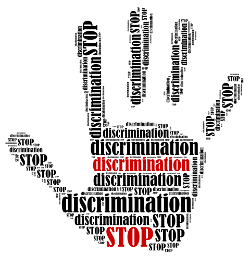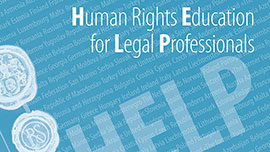Support to Ombudsperson and anti-discrimination institutions (National Human Rights Institutions)

The prohibition of discrimination is considered as one of the fundamental freedoms that needs protection. It is guaranteed by Article 14 of the European Convention on Human Rights, which pledges equal treatment in the enjoyment of the other rights set down in the Convention without discrimination on any ground such as sex, race, colour, language, religion, political or other opinion, national or social origin, association with a national minority, property, birth or other status. Protocol No. 12 to the Convention expands the scope of the prohibition of discrimination by guaranteeing equal treatment in the enjoyment of any right (including rights under national law). The European Commission against Racism and Intolerance in its General Policy Recommendation No. 74 urges countries to provide for a prohibition of discrimination in all areas.
The Human Rights National Implementation Division provide support to these institutions, on the basis of needs precisely identified. It includes the improvement of legislative and regulatory framework; the training of human rights defenders, NHRIs, their staff and other legal professionals on thematic issues, such as anti-discrimination or data protection and on procedures, such as the drafting of reports, the handling of complaints or how to conduct visits in places of deprivation of liberty; the improvement of communication and cooperation between different NHRIs and building of institutional frameworks for such cooperation and awareness raising activities to ensure that the general public knows the NHRIs and their role. The Division also supports Equality bodies to fulfill their role efficiently.
On-going projects
Albania
Armenia
- Supporting the criminal justice reform and combating ill-treatment and impunity
- Strengthening the Application of European Human Rights standards in the Armed forces
Bosnia and Herzegovina
Kosovo*
Moldova
- Supporting national efforts of prevention and combatting discrimination
- Support to criminal justice reforms in the Republic of Moldova
Montenegro
Ukraine
Completed projects
Georgia
Kosovo*
Montenegro
_______________
* "All reference to Kosovo, whether the territory, institutions or population, in this text shall be understood in full compliance with United Nation’s Security Council Resolution 1244 and without prejudice to the status of Kosovo."




